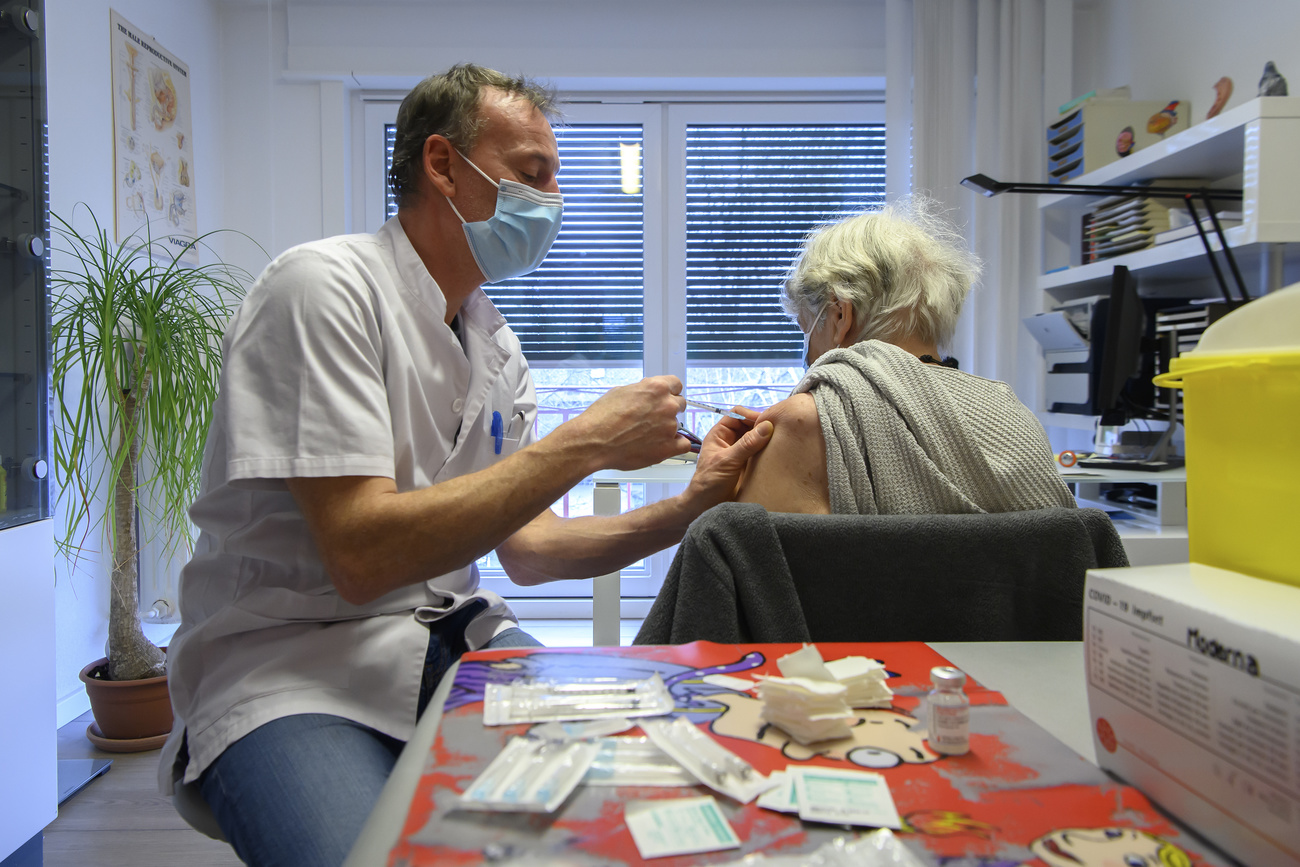
Swiss divided over employer role in Covid-19 vaccinations

Roughly half of Swiss workers want their employer to play an active role in encouraging staff to take the jab against the coronavirus, a new survey shows.
Of the 1,500 people polled by the consulting firm Deloitte, 49% believed vaccination was a private matter and that the employer should stay out of it, according to the results released on Thursday.
Among the 51% who thought their employer should get involved, a majority (59%) wanted their employer to recommend taking the Covid vaccine. Just under half wanted further encouragement in the form of incentives, such as bonuses or arranging vaccination appointments. However, only a minority (16%) believed that vaccination should be a pre-requisite for undertaking certain occupational activities.
Although there were no marked differences in results between age groups or regions, according to Deloitte, workers at larger companies were somewhat more open to their employers actively influencing vaccination among staff than those working for small or medium enterprises.
Since March, Swiss employers can carry out regular rapid Covid-19 tests among staff on a voluntary basis, as part of a government-funded mass testing initiative aimed at further limiting the spread of new variants of the virus.
Most cantons, however, have not yet begun vaccinating people of working age.
According to a survey done by the Swiss Broadcasting Corporation, SWI swissinfo.ch’s parent company, in January 41% of people said they were willing to get the jab, up from 16% last October. Some 24% did not want to get vaccinated.
To date, around 8% of the Swiss population has been fully vaccinated against the coronavirus.

In compliance with the JTI standards
More: SWI swissinfo.ch certified by the Journalism Trust Initiative




























You can find an overview of ongoing debates with our journalists here . Please join us!
If you want to start a conversation about a topic raised in this article or want to report factual errors, email us at english@swissinfo.ch.